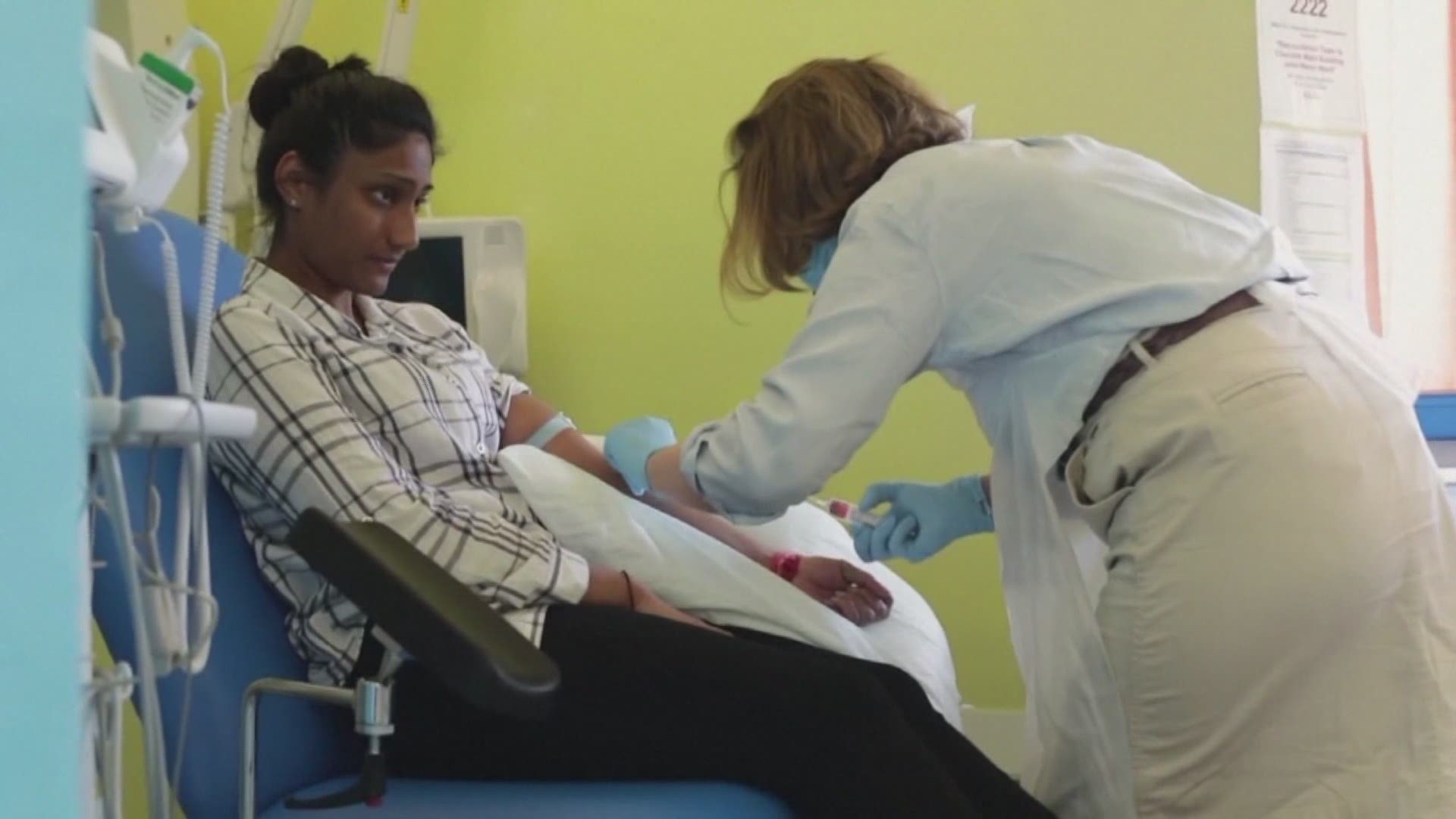With a COVID-19 vaccine in reach, county health departments are tasked with formulating distribution plans despite many unknowns. For them, the light at the end of the tunnel brings with it a set of new challenges.
"It's the switchover for me," said Mary Wisinski, immunization program supervisor for the Kent County Health Department. "From a lot of my focus on testing to a lot of my focus on the vaccine."
Earlier this week, Michigan's Chief Medical Executive Dr. Joneigh Khaldun announced that a dozen county health departments and 48 hospitals had the ultra low temperature freezers required to store and administer the Pfizer vaccine, which has to be stored at -94 F.
Over 100 facilities in the state are equipped to store and distribute the Moderna vaccine.
The Food and Drug Administration is expected to have a decision on authorizing the vaccines for emergency use by mid-December, according to Khaldun.
Kent County has the capabilities to administer both the Pfizer and Moderna vaccines and will act as a hub for the southwest region of the state, Wisinski said.
The health department currently has one specialized freezer, which was purchased with federal coronavirus relief aid dollars earmarked by the state for vaccine distribution, according to KCHD.
Wisinski said she thinks the freezer can hold upwards of 200,000 doses, and another freezer is on the way. There's also an assumption that by next year vaccines that can be refrigerated will be available.
The department is also working to secure an adequate number of masks, shields, alcohol preps, Band-Aids and Sharps containers.
"There are certain lessons we learned from H1N1. So, we know what supplies we need to gather and we've worked very diligently in the last couple months to make that happen so that we're ready," said Wisinski, who is also a registered nurse.
She says mass vaccination for COVID-19 is a new undertaking.
The swine flu in 2009, also known as H1N1, better prepared the department, but there are differences.
"We did sometimes 3-5,000 people in a weekend, but that was a refrigerated vaccine and readily available to providers," Wisinski said. "So, our plans will just change based on what type of vaccine we have and the number of doses that are allocated to us."
It's not clear yet the quantities each state will receive of the first vaccines.
According to the Associated Press, it's estimated than no more than 20 million doses of each vaccine will be available before the end of the year, and both vaccines require two doses.
"I think that's our biggest challenge is to say, 'Yep. Here's a definitive plan...it'll be shipped on this date, we should receive it on that date,'" said Kathy Moore, public health director for Muskegon County. "We have not gotten any confirmation at that level yet."
Earlier this week, the Advisory Committee on Immunization Practices made its recommendations to the Center for Disease Control that healthcare workers and long-term care residents should receive the vaccine first.
The Ottawa County Department of Public Health says it is in the process of surveying the community to determine how many people would be eligible to receive the initial rollout of the vaccine.
Dr. Khaldun said the plan is to prioritize all frontline healthcare workers and then move to long-term care facilities in January.
From there, the vaccine will broaden out to include other critical care workers, Khaldun said in a Tuesday press conference.
The hope is to have it available to the general public by late spring, but it all hinges upon availability.
In Muskegon County, Moore said the public health department is forming a team of community leaders to determine how to best prioritize critical care workers, which will likely be next in line.
"I mean every worker is an essential worker, so how do we prioritize which group of workers or category would get that first," Moore said Friday. "Which is why we're calling together a team of leaders here in Muskegon County."
In Kent County, Wisinski said they've developed teams with specific focuses, including race, equity and inclusion, long term care facilities and college campuses.
"We're trying to look at every facet of our community to make sure that it's a good rollout, and that everyone has equitable access once we have a good supply of vaccine," Wisinksi said.
While the vaccine signifies the beginning of the end, Wisinski expects the work will continue into next summer or fall.
"I think it's going to be an incredibly long effort, in order to get people vaccinated," she said. "Which means the community still needs to do their part with social distancing, mask wearing, handwashing and staying home to help protect those vulnerable people in your family."
"The light is at the end of the tunnel, but we're still in the tunnel, I guess," Wisinski said.
As of Friday, Michigan has reported a total of 389,032 coronavirus cases and 9,661 deaths. Over 140 people, more than 40% of all COVID-19 related deaths in Kent County, happened in November. In Ottawa and Muskegon County, about 45% and 47% respectively of all COVID-19 related deaths occurred last month.
RELATED VIDEO:
►Make it easy to keep up to date with more stories like this. Download the 13 ON YOUR SIDE app now.
Have a news tip? Email news@13onyourside.com, visit our Facebook page or Twitter. Subscribe to our YouTube channel.


